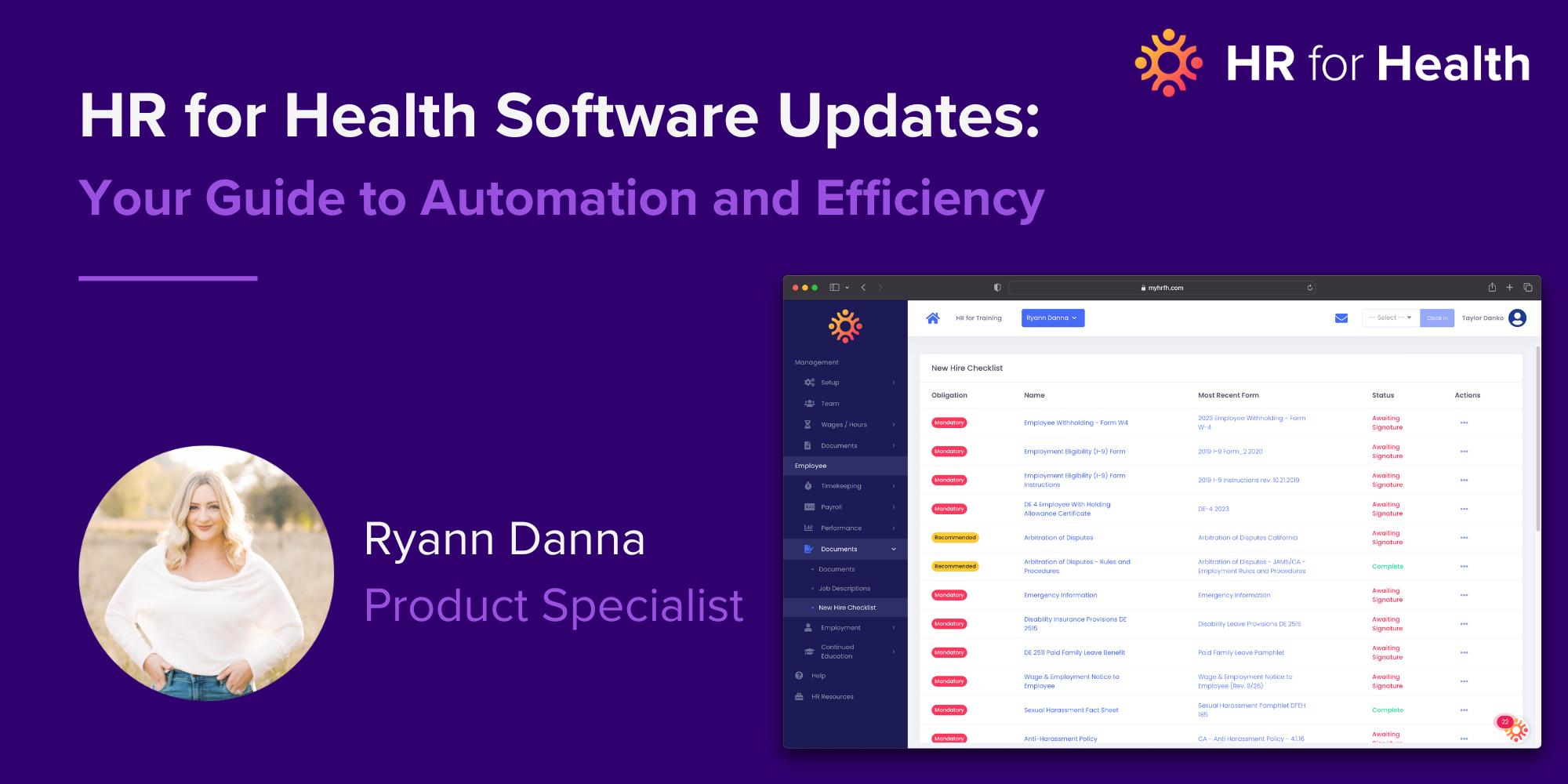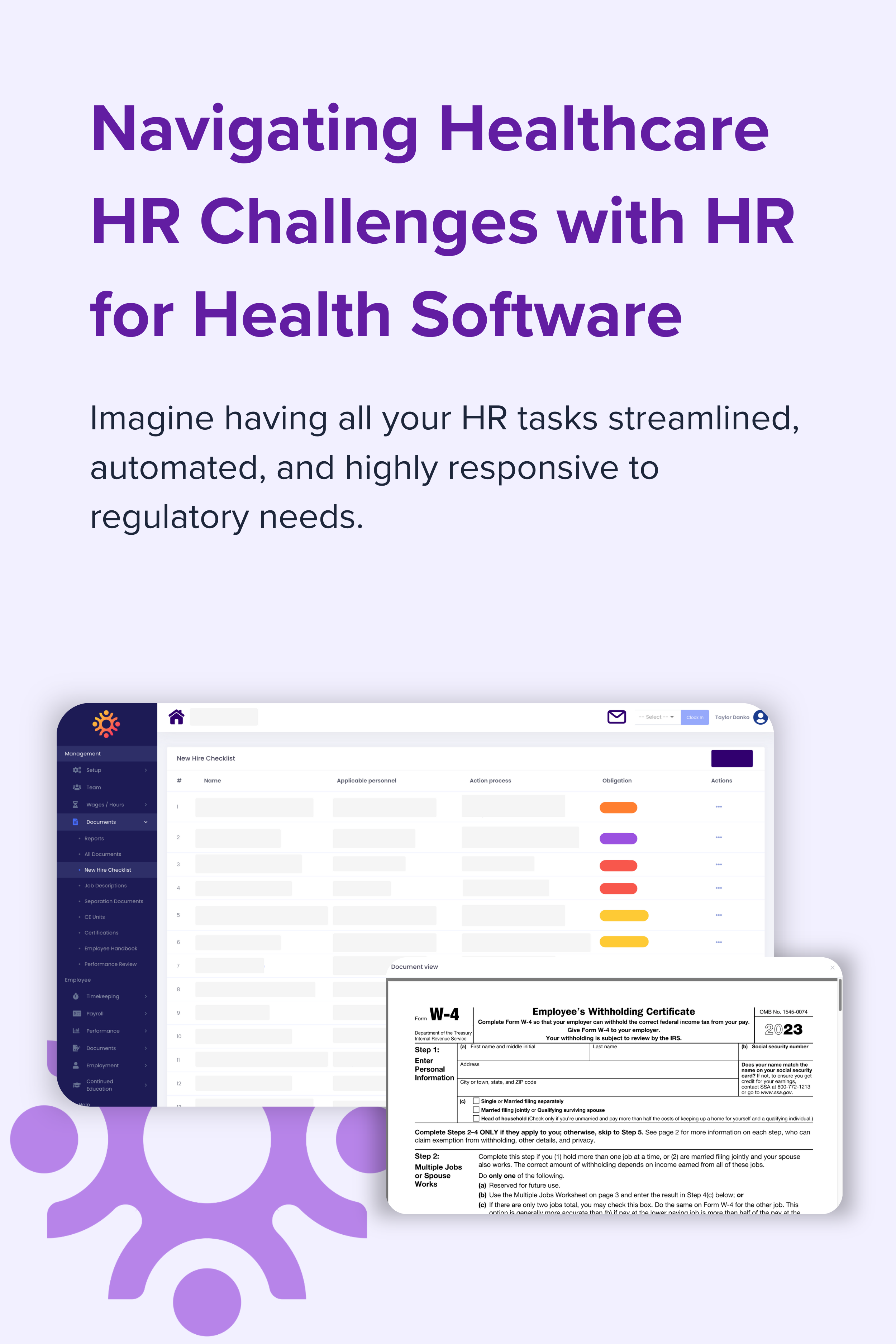The healthcare industry is facing a number of human resources challenges. These challenges are making it difficult to recruit and retain qualified healthcare workers, which is leading to staffing shortages. They are also contributing to employee burnout, which is impacting the quality of care.
In this blog post, we will discuss the current human resources challenges in healthcare and how HR for Health Software can help. We will also provide some tips for healthcare organizations that are looking to improve their human resources management.
The State of HR in Healthcare
Healthcare’s human resources departments are more essential now than ever, but they’re also faced with unprecedented challenges. From staff shortages to high turnover rates and employee burnout, it’s clear that there’s a lot to tackle. Recent statistics indicate that 20% of new employees leave within the first 90 days, signaling that the recruitment and onboarding process needs improvement. But how do we go about this, after recognizing the problem?
That’s where we introduce HR for Health Software: your new ‘HR Best Friend.’ This software is designed to take the stress out of managing employees, ensuring every process is simplified, your team stays engaged, and you remain confidently compliant with all industry laws and regulations.
 WEBINAR – HR for Health Software Updates: Your Guide to Automation and Efficiency
WEBINAR – HR for Health Software Updates: Your Guide to Automation and Efficiency
The HR Challenges in Healthcare
The healthcare industry is facing a number of human resources challenges, which are only being exacerbated by the COVID-19 pandemic. These challenges include:
- A shortage of healthcare workers. The demand for healthcare workers is growing, but the supply is not keeping pace. This is due to a number of factors, including an aging population, increasing chronic diseases, and the rising cost of healthcare. The healthcare industry is projected to face a shortage of 10 million workers by 2030. This shortage is particularly acute in some areas, such as rural areas and certain specialties, such as nurses and physicians.
- High turnover rates. The healthcare industry has one of the highest turnover rates of any industry. This is due to a number of factors, including long hours, demanding work, and low pay. The average turnover rate for healthcare workers is 22.7%, which is significantly higher than the national average of 9.31%.
- Employee burnout. Healthcare workers are under a lot of stress, both physically and emotionally. This can lead to burnout, which can have a negative impact on patient care. According to a recent study, nearly half of all healthcare workers report feeling burned out at work.
- Privacy and security concerns. The healthcare industry is responsible for handling a lot of sensitive patient data. This data must be protected from unauthorized access, which can be a challenge in the digital age. The healthcare industry has been the target of a number of cyberattacks in recent years, which have resulted in the theft of patient data.
- Compliance with regulations. The healthcare industry is subject to a number of regulations, which can be complex and time-consuming to comply with. The healthcare industry is regulated by a number of federal agencies, including the Centers for Medicare & Medicaid Services (CMS), the Food and Drug Administration (FDA), and the Occupational Safety and Health Administration (OSHA).
These challenges are having a significant impact on the healthcare industry. They are making it difficult to recruit and retain qualified healthcare workers, which is leading to staffing shortages. They are also contributing to employee burnout, which is impacting the quality of care.

How HR for Health Software Can Help
Imagine having all your HR tasks streamlined, automated, and highly responsive to regulatory needs. That’s what HR for Health Software offers. Here’s how:
Automating time-consuming tasks: Tedious tasks like onboarding, performance management, and more are automated, freeing up your time for strategic HR management.
Simplifying administrative processes: Easily generate reports, track employee hours and overtime, and manage time-off requests without breaking a sweat.
- Performance management: HR for Health Software can help healthcare organizations track employee performance and provide regular feedback. This can help to improve employee engagement and productivity.
- Compliance: HR for Health Software can help healthcare organizations stay compliant with a variety of regulations. This can help to protect the organization from legal liability.
Plus, the software’s incredible security features guarantee that sensitive employee information remains confidential, fostering a culture of trust.
Drawing To a Close
HR for Health Software can be a valuable tool for healthcare organizations that are looking to address the challenges they face in the human resources arena. By providing a number of features and benefits, HR for Health Software can help to improve recruitment and retention, performance management, compensation and benefits, and compliance.
If you are a healthcare organization that is looking for a way to improve your human resources management, I encourage you to learn more about HR for Health Software.


